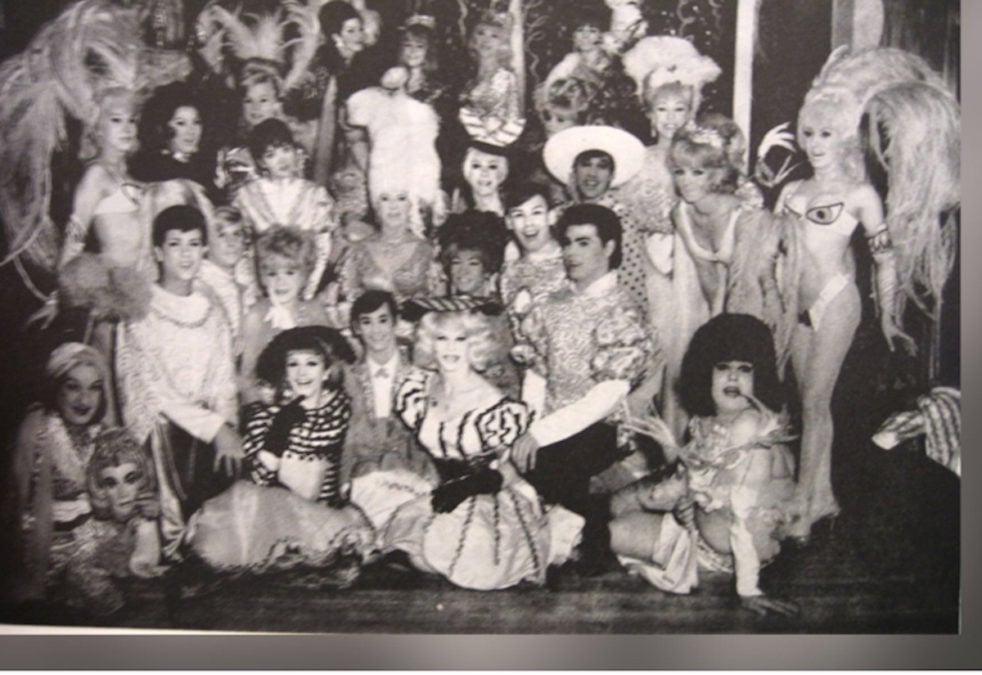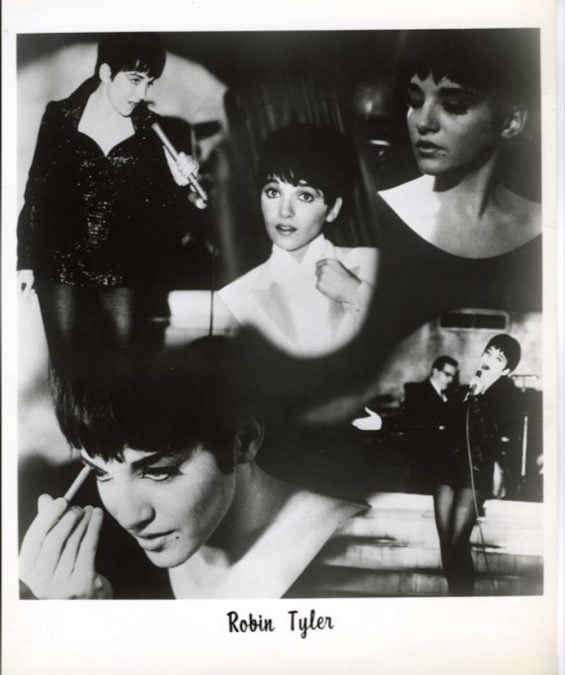(For June, which is designated LGBTQ Pride Month, Q Voice News will feature a series of first person essays under the theme What Pride Means To Me. Our first article is by Robin Tyler, who has been a pioneering lesbian activist more than 40 years. Happy Pride.)
What Pride Means To Me
I was never “in the closet.” When I found out that there was a word to describe my attraction to Sheri Bernstein (and at that time, the word was “gay”), I thought it was fabulous. I was Canadian. I was an Aries. I was Jewish, and I was GAY!
I immediately told my mother. Why not? After all, it was 1959, and I was 17 years old. I wanted to share my new found joy! Unfortunately my mother did not take it as well as I had expected. Once my father and I revived her, she took to her bedroom for several months. I became friends with Terry Bishiuk, who never hesitated to wear his mother’s make-up to class. Together, we would stand on the corner of Portage and Main in Winnipeg and hold up a sign “Gay is Good,” and people would give us money.

This group photo shows the drag queens and female impersonators who worked with Robin Tyler at Club 82 in the 1960s. Tyler (third row and third person from the left, next to the showgirl in the large white head dress) worked at the club as a Judy Garland female impersonator. Photo: Courtesy of Robin Tyler.
Transgender activists Marsha P. Johnson, Sylvia Rivera to be honored in monument
Moving to New York City
By 1962, I had moved to New York, where I could meet fabulous women who looked like Audrey Hepburn, and go to fabulous clubs that looked like the Rainbow Room!
Most of the women in no way resembled Audrey Hepburn (although some of the gay men did), and the mafia owned the dinky, dark lesbian and gay bars which in no way resembled a classy nightclub.
I attended a drag ball, got arrested for female impersonation, and became a Judy Garland female impersonator at Club 82.
The ads read that there was only one “real girl” in the show. Of course, no one ever thought it was I, except for my mother, who thought everyone was a real girl. (I didn’t have the heart to tell her.)

In the 1960s, Robin Tyler worked as a Judy Garland female impersonator at New York City’s Club 82. Photo: Courtesy Robin Tyler.
Stonewall Inn Riots
I heard about the fight between the police and us at the Stonewall Inn, so I went the second night. My partner at the time, Pat Harrison, would not allow me to participate — If I were arrested there, I would be thrown out of the country. (I had to sign an affidavit saying I was not a drug addict, a prostitute or a “homosexual” before I could come to the U.S.)
Finding Pride
I just stood there and watched, and cheered and cried and cheered. When we returned to our apartment, I told Pat I would never again stand by while someone else fought my battle — Even if it meant being thrown out of the country.
At that point, PRIDE came into my life, and I never looked back.
